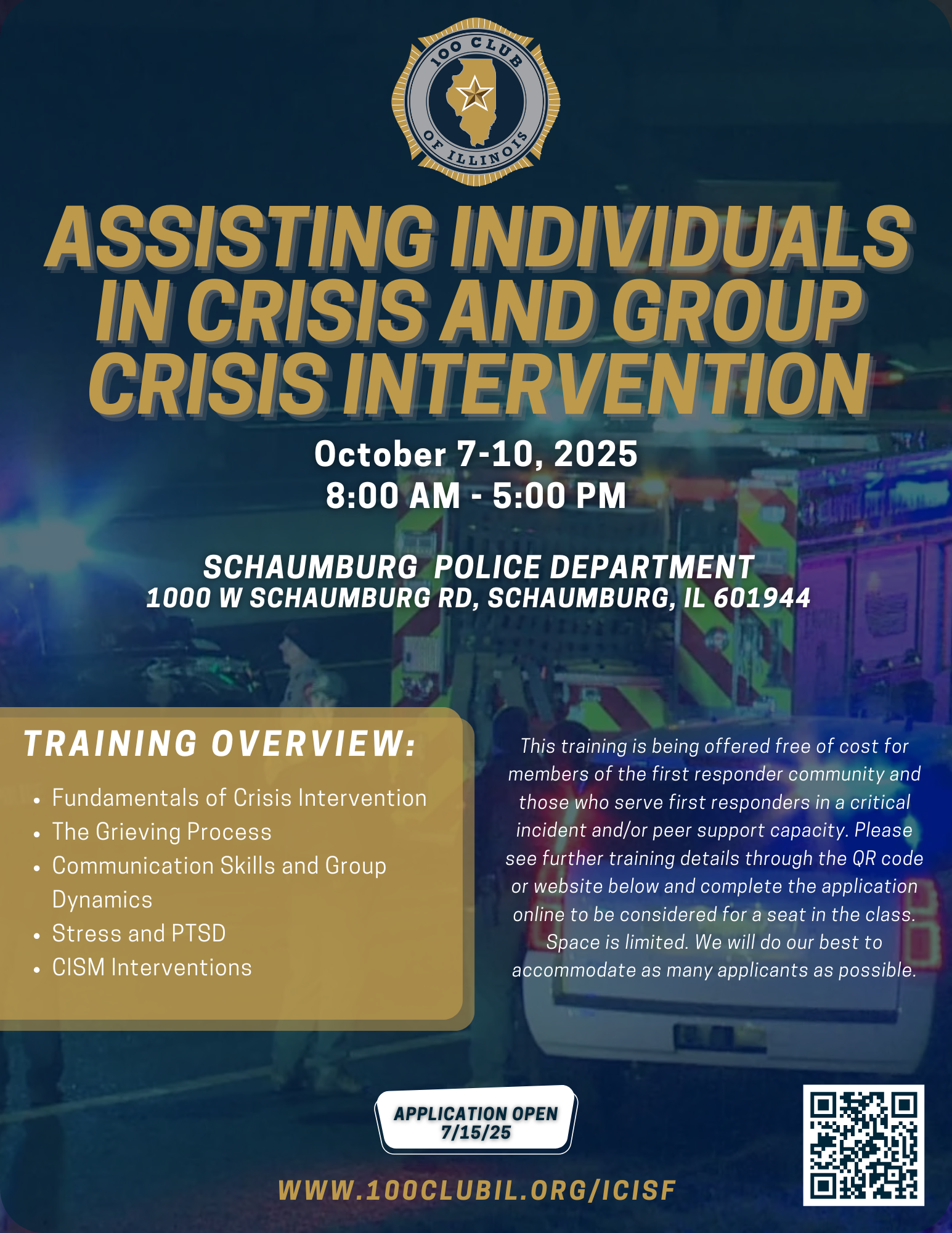Assisting Individuals in Crisis and Group Crisis Intervention
Join the International Critical Incident Stress Foundation (ICISF) for a 32-hour training over a period of three consecutive days, presenting on “Assisting Individuals in Crisis & Group Crisis Intervention”.
All training materials and certificates will be included in this training at no cost for members of the first responder community and those who serve first responders in a critical incident and/or peer support capacity. Please see further training details on this webpage and complete the application below to be considered for a seat in the class. Space is limited. We will do our best to accommodate as many applicants as possible.
MULTI-DAY TRAINING | OCTOBER 7-10
8:00 AM – 5:00 PM
SCHAUMBURG POLICE DEPARMENT

LEARNING OBJECTIVES
This course will achieve the following learning objectives:
- To increase awareness of key terms and concepts relevant to the practice of crisis intervention and disaster mental health intervention.
- To become familiar with relevant research findings.
- To become familiar with relevant recommendations for practice.
- To understand the nature and importance of incident assessment and strategic intervention planning.
- To understand the nature of the “resistance, resilience, recovery” continuum and the role of the integrated multi-component Critical Incident Stress Management System (CISM).
- To become familiar with large group crisis interventions, demobilizations and crisis management briefings (CMB).
- To become familiar with small group crisis interventions, defusings, Critical Incident Stress Debriefing (CISD) and Small Group Crisis Management briefing (CMB).
- To become familiar with risks of adverse outcome associated with crisis intervention and how to reduce those risks.
- To practice large and small group crisis intervention and how to reduce those risks.
- To practice specifically the small group Critical Incident Stress Debriefing (CISD).
- Understand the natures & definitions of a psychological crisis and psychological crisis intervention.
- Discuss issues and findings of evidence-based practice as it relates to psychological crisis intervention.
- Practice basic crisis communication techniques.
- Be familiar with common psychological and behavioral crisis reactions, including empirically-derived predictors of post-traumatic stress disorder.
- Understand the putative and empirically-derived mechanisms of action in psychological crisis intervention.
- Practice the SAFER-Revised model of individual psychological crisis intervention.
- Understand how the SAFER-Revised model may be altered for suicide intervention.
- Understand and discuss the risks of iatrogenic “harm” associated with psychological crisis intervention and will further discuss how to reduce those risks.
